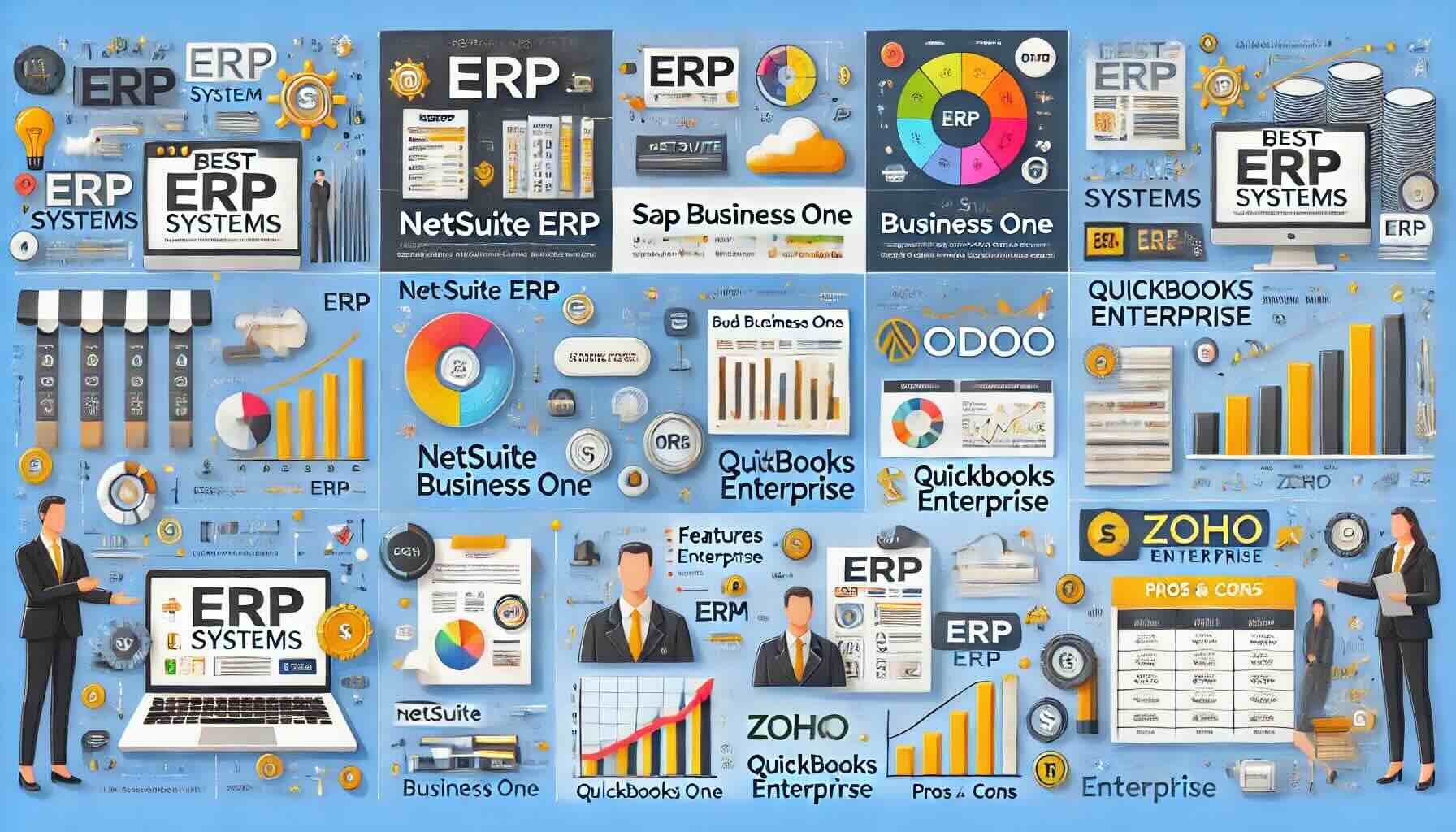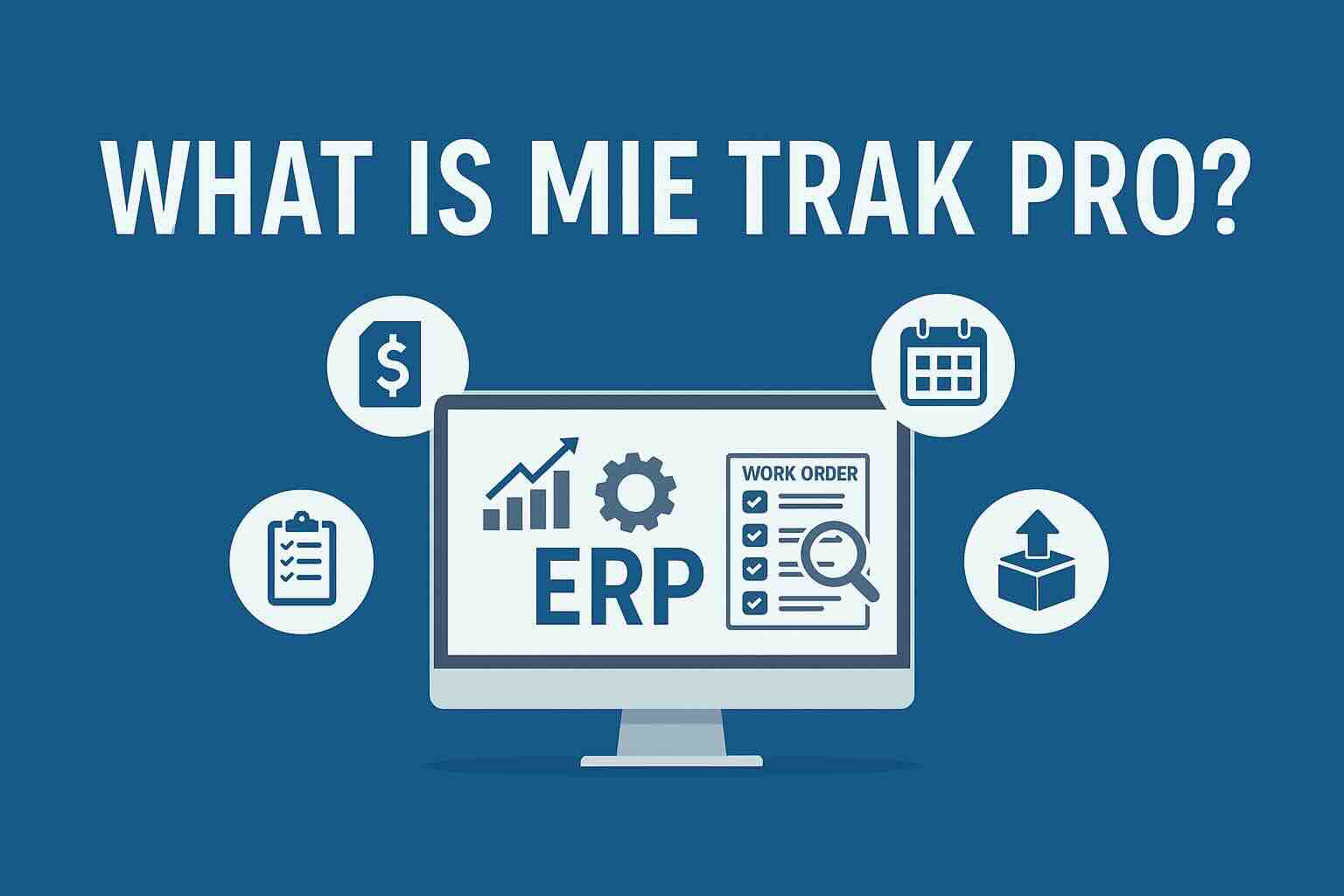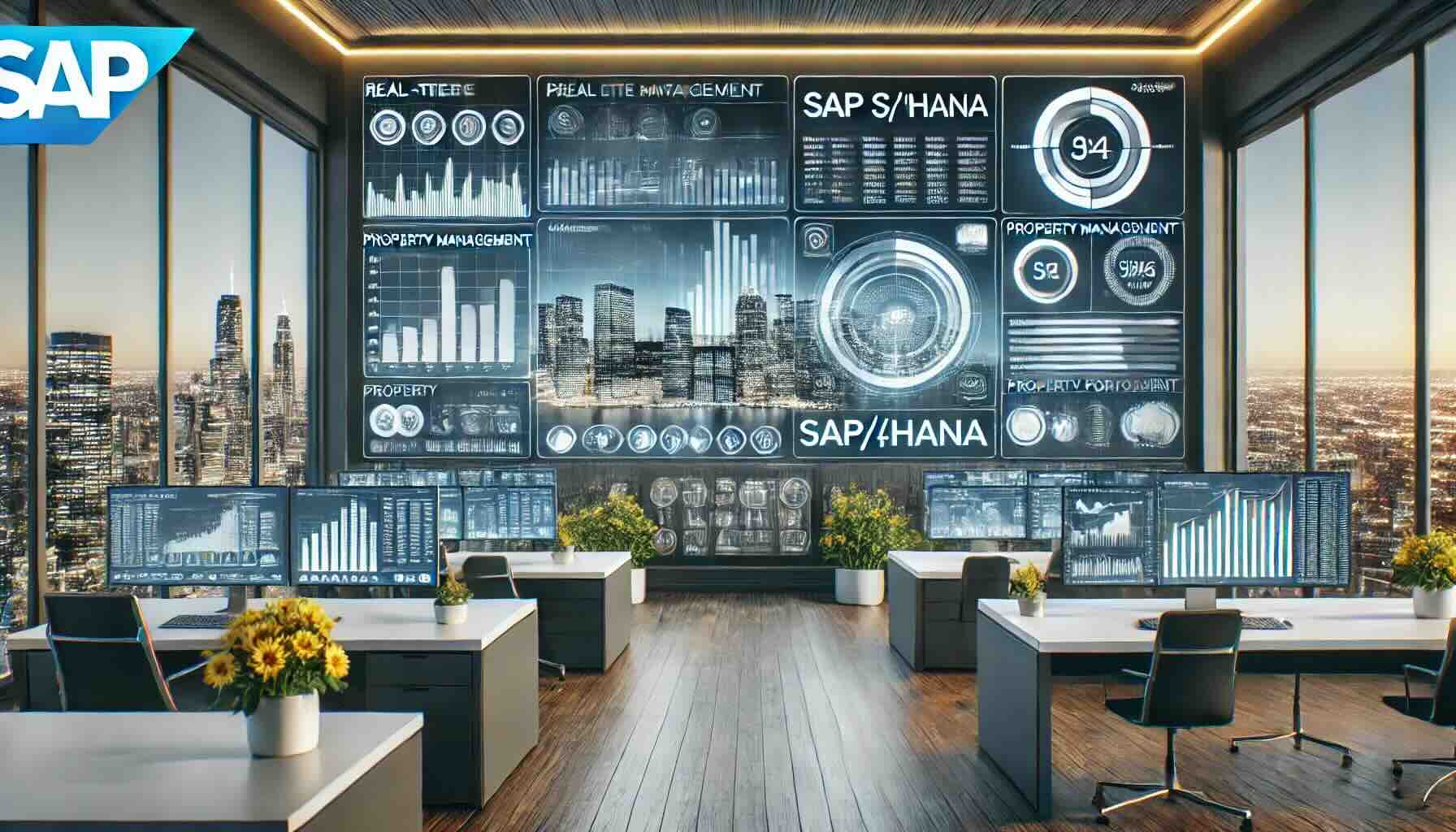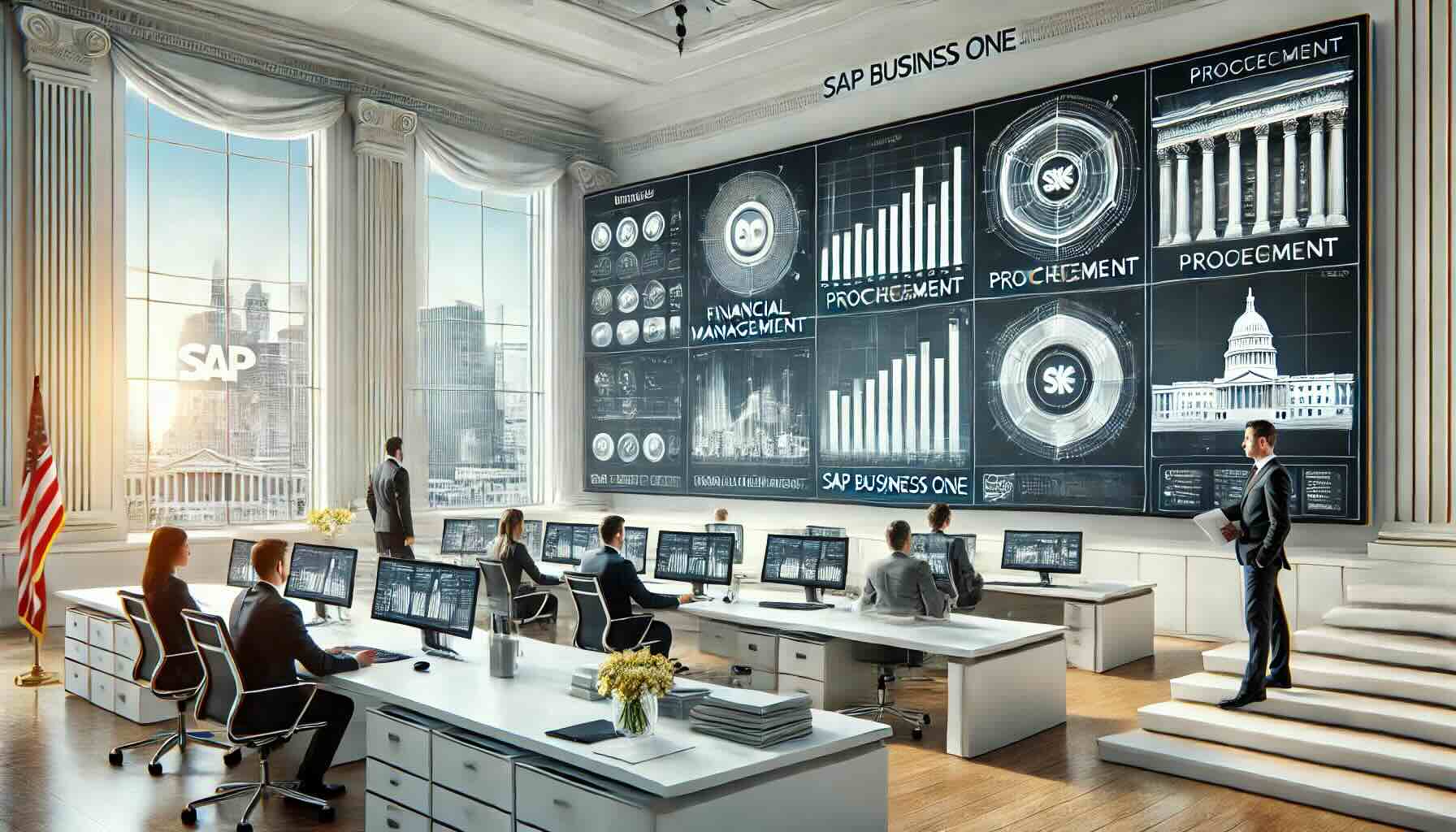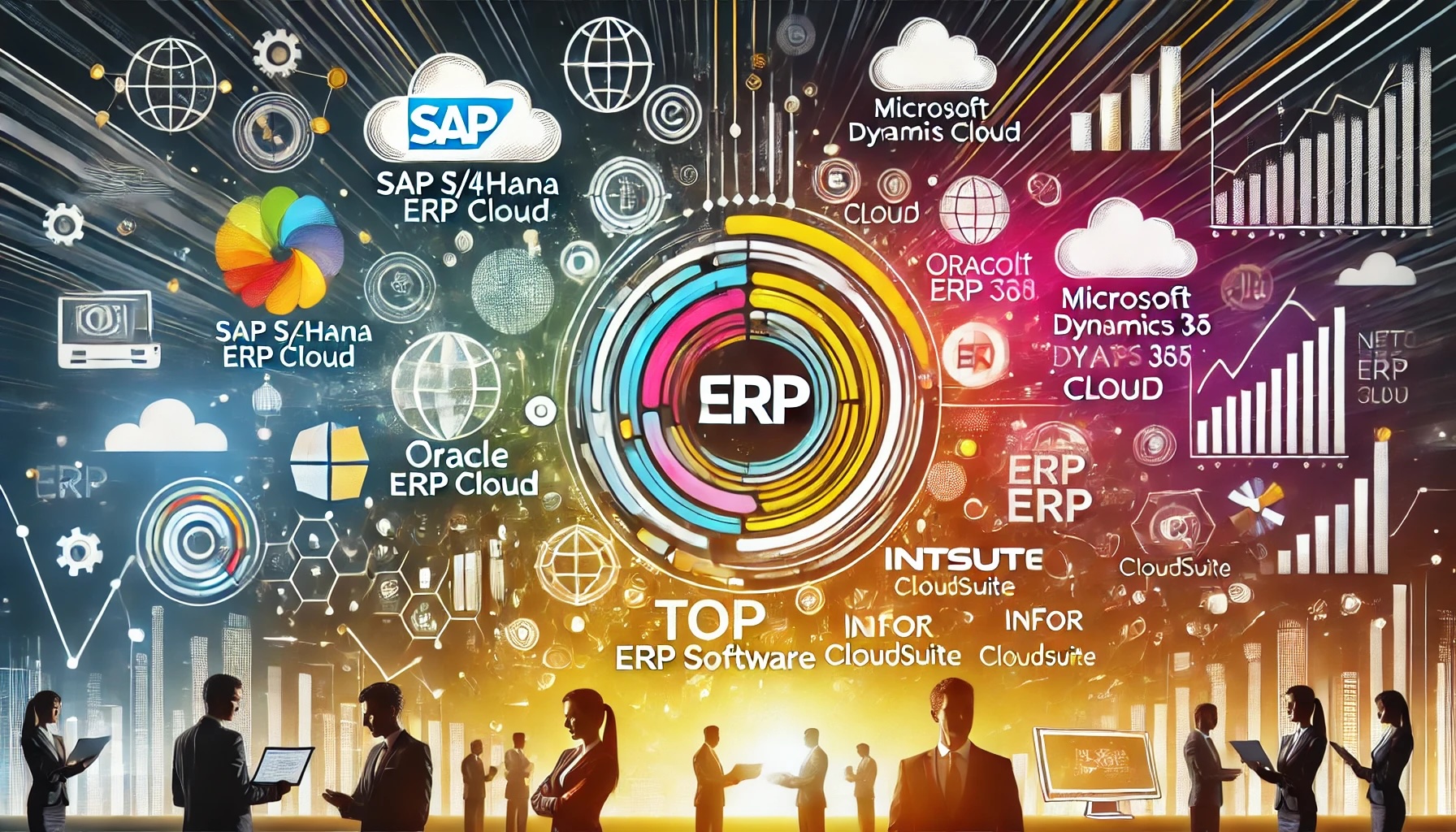Choosing the Best ERP for Large Businesses in 2025
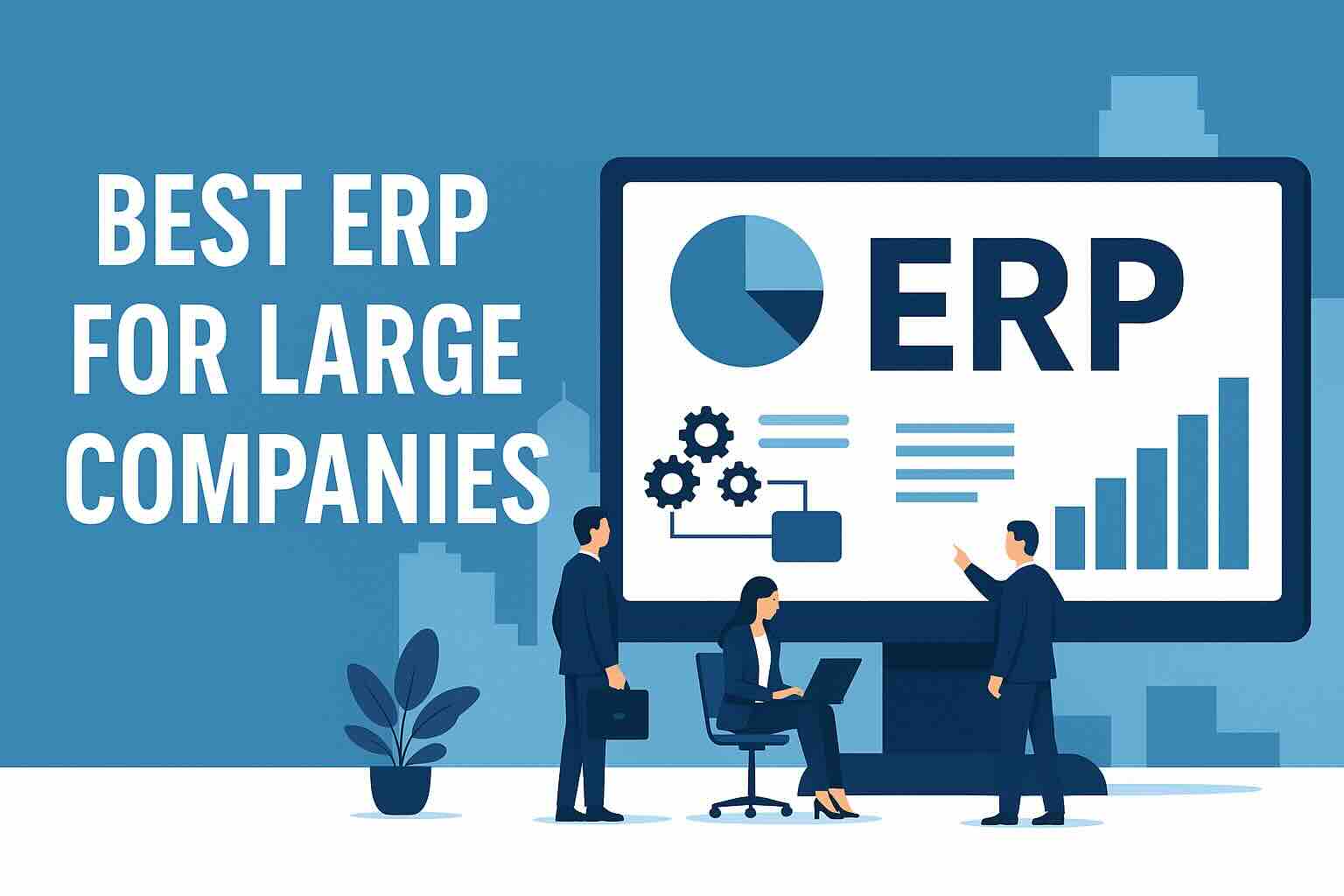
Enterprise Resource Planning (ERP) systems are the backbone of large organizations. They help streamline operations, connect processes, and provide insights across departments. Choosing the best ERP for large companies is not simple. It requires careful thought about scalability, integration, industry needs, and long-term support.
In this article, we’ll look at the leading ERP systems for large enterprises in 2025. We will also explain their features and share tips on how to choose the right one.
What Makes an ERP Suitable for Large Companies?
For an ERP to be effective in a large enterprise, it should include:
- Scalability: Support thousands of users and high transaction volumes.
- Integration Capabilities: Seamlessly connect with existing tools, CRMs, and analytics platforms.
- Customization: Adaptable modules tailored to industry-specific needs.
- Advanced Analytics: AI-driven insights and predictive reporting.
- Security and Compliance: Robust data protection and adherence to global standards.
- Global Support: Multi-language and multi-currency features for international operations.
In-Depth Look at Leading ERP Solutions
1. SAP S/4HANA
Why It Stands Out: SAP S/4HANA is built on SAP’s powerful in-memory HANA database, enabling real-time data processing, predictive analytics, and advanced automation. The system supports complex industries like manufacturing, utilities, and healthcare. In 2025, SAP introduced enhanced AI/ML features, sustainability management, and a new Sovereign Cloud On-Site deployment for highly regulated industries.
Key Features:
- Real-time analytics and reporting
- SAP Fiori 4.0 interface for modern UX
- Comprehensive financial and supply chain management
- Industry-specific solutions with digital twin capabilities
- Deployment flexibility, including on-prem, cloud, and sovereign cloud
Learn More: Visit SAP S/4HANA.
2. Oracle Fusion Cloud ERP
Why It Stands Out: Oracle Fusion Cloud ERP offers a complete, cloud-native suite integrating financials, procurement, risk, and project management. It leverages AI for predictive insights and delivers robust compliance, making it a favorite in service-heavy industries.
Key Features:
- AI-driven forecasting and automation
- End-to-end financial management
- Composable, scalable architecture
- Strong compliance and security controls
- Advanced procurement and supply chain tools
Learn More: Explore the Oracle ERP suite.
3. Microsoft Dynamics 365
Why It Stands Out: Microsoft Dynamics 365 blends ERP and CRM in a modular system. It integrates seamlessly with Microsoft’s ecosystem – Office 365, Power BI, and Azure – making it ideal for organizations invested in Microsoft solutions.
Key Features:
- Modular applications for flexibility
- Seamless Office 365 and Azure integration
- AI-driven insights via Power BI
- CRM and ERP in one platform
- Global compliance and localization support
Learn More: Visit Microsoft Dynamics 365.
4. Infor CloudSuite
Why It Stands Out: Infor CloudSuite provides industry-focused ERP solutions with embedded analytics. Its cloud-native design and strong supply chain functionality make it suitable for manufacturing, distribution, and healthcare.
Key Features:
- Industry-specific bundles
- Analytics with Infor Birst
- Unified user experience via Infor OS
- Scalable cloud-native deployment
- Advanced supply chain management
Learn More: Explore Infor CloudSuite.
5. Workday Enterprise Management Cloud
Why It Stands Out: Workday excels in finance and HR, providing a unified platform for financials, workforce planning, and talent management. Its continuous innovation model ensures enterprises always run on the latest version.
Key Features:
- Unified finance and HR system
- Real-time analytics and dashboards
- Employee engagement and talent development tools
- Regular system updates
- Cloud-based scalability
Learn More: Visit Workday.
6. IFS Cloud
Why It Stands Out: IFS Cloud is designed for asset-intensive and project-centric industries. It integrates AI, IoT, and lifecycle management into a flexible architecture that supports both cloud and on-prem deployment.
Key Features:
- Asset lifecycle and project management
- Advanced manufacturing functionality
- AI/IoT integration
- Flexible, modular design
- Deployment flexibility
Learn More: Discover IFS Cloud.
7. Epicor Kinetic
Why It Stands Out: Epicor Kinetic focuses on manufacturing and distribution, offering ERP tailored to industry requirements with modern cloud capabilities and IoT integration.
Key Features:
- Manufacturing-focused solutions
- Supply chain optimization
- AI-driven production planning
- Deployment options: cloud or on-premises
- Scalable to enterprise growth
Learn More: Visit Epicor Kinetic ERP.
8. NetSuite ERP
Why It Stands Out: NetSuite, from Oracle, is a leading cloud-native ERP platform known for flexibility, global financials, and built-in CRM and e-commerce capabilities.
Key Features:
- Real-time analytics and dashboards
- Multi-subsidiary and multi-currency support
- Integrated CRM and e-commerce
- Customizable and scalable
- Strong global compliance features
Learn More: Explore NetSuite ERP.
9. Sage X3
Why It Stands Out: Sage X3 supports complex manufacturing and distribution processes, offering advanced financial and supply chain tools with scalability for large enterprises.
Key Features:
- Financial management and reporting
- Integrated supply chain and production
- Real-time analytics and dashboards
- Multi-currency and multi-language support
- Highly customizable workflows
Learn More: Visit Sage X3.
10. QAD Adaptive ERP
Why It Stands Out: QAD Adaptive ERP is designed for global manufacturers needing agility and resilience. It includes out-of-the-box functionality for core manufacturing processes, embedded AI analytics, and low-code extensibility.
Key Features:
- Manufacturing and supply chain optimization
- Cloud-based scalability
- Embedded AI and automation
- Compliance with global regulations
- Multi-language, multi-currency support
Learn More: Visit QAD Adaptive ERP.
How to Choose the Best ERP for Your Company
When evaluating ERP systems, consider:
- Assess Business Needs: Identify industry-specific requirements and growth goals.
- Evaluate Compatibility: Ensure the ERP integrates with your existing infrastructure.
- Consider Customization: Look for flexibility in workflows and reporting.
- Test Through Demos: Request demonstrations and trial periods.
- Check References: Explore customer reviews and case studies for real-world validation.
Conclusion
Selecting the best ERP for large companies is a strategic decision with long-term impact. SAP S/4HANA, Oracle Fusion Cloud ERP, Microsoft Dynamics 365, Infor CloudSuite, Workday, IFS Cloud, Epicor Kinetic, NetSuite ERP, Sage X3, and QAD Adaptive ERP represent the top solutions in 2025. Each offers unique strengths, so the right choice depends on your industry, operational complexity, and global footprint.
By aligning ERP capabilities with business objectives, large organizations can achieve greater efficiency, scalability, and long-term success.
Compare ERP for Smarter Selection
Implementing the right ERP system could be the game-changer your business needs. With our AI-powered Compare ERP tool, you can effortlessly explore and compare solutions tailored to your unique business needs. Our advanced engine analyzes millions of data points across 100+ ERP solutions, delivering your top three picks based on your business priorities. Best of all, it’s completely free. Take the first step toward streamlining operations and boosting productivity and start comparing today!



